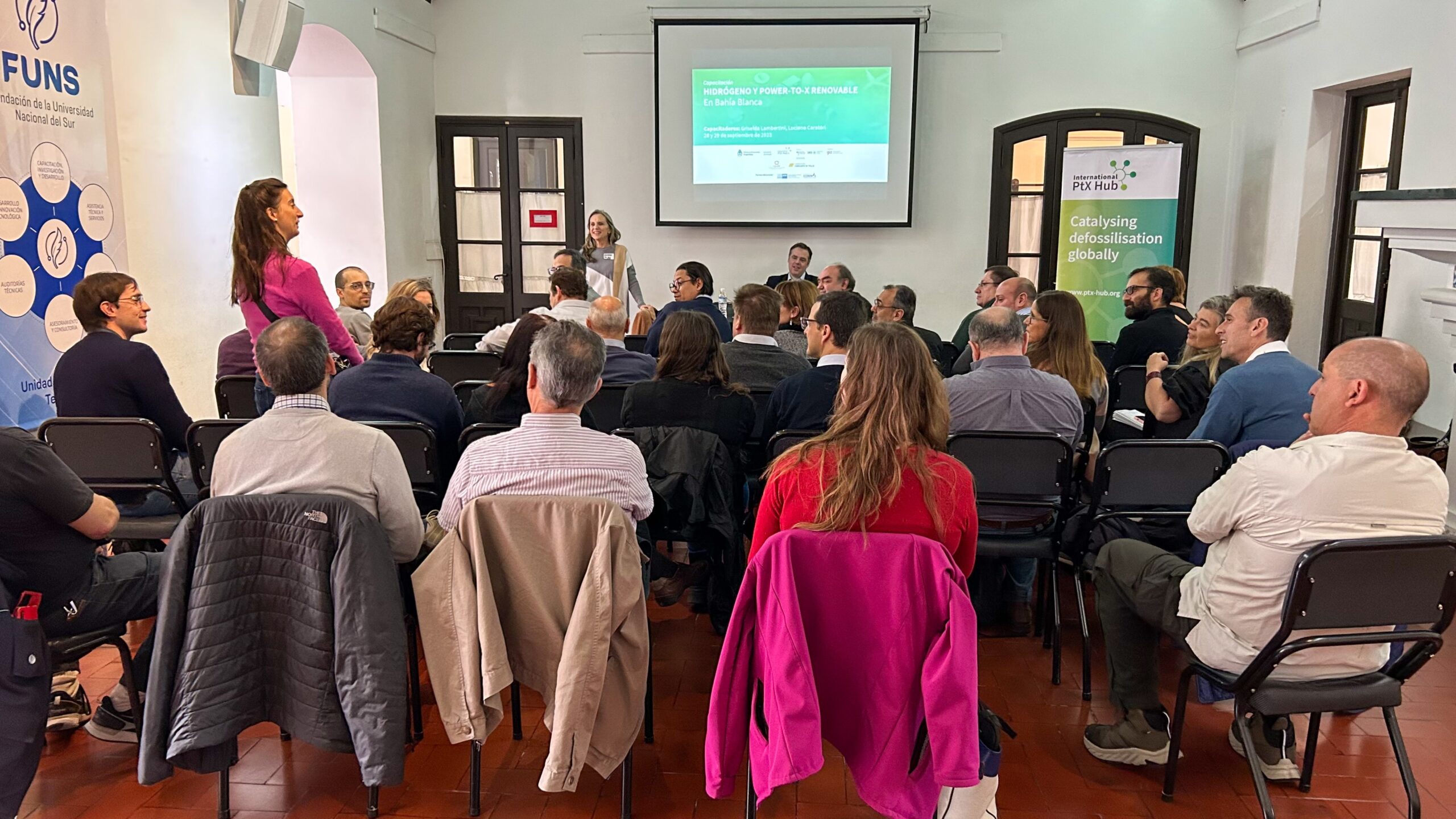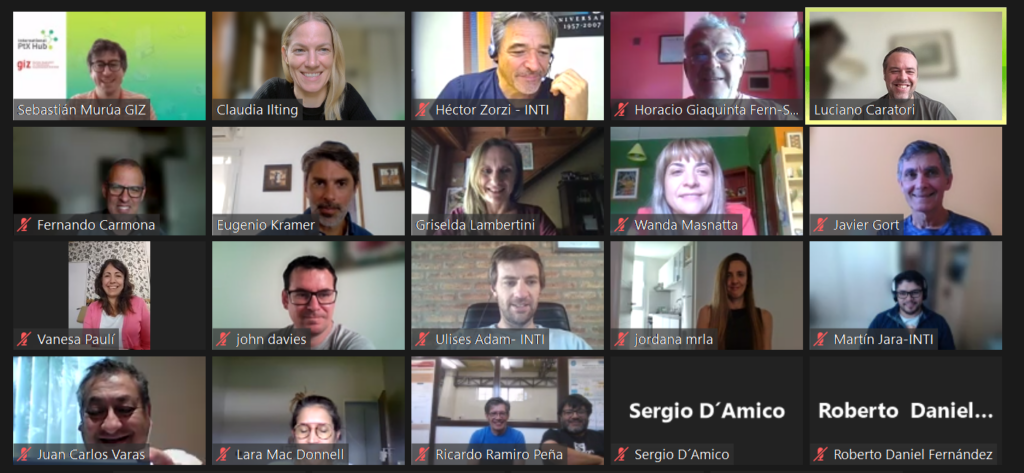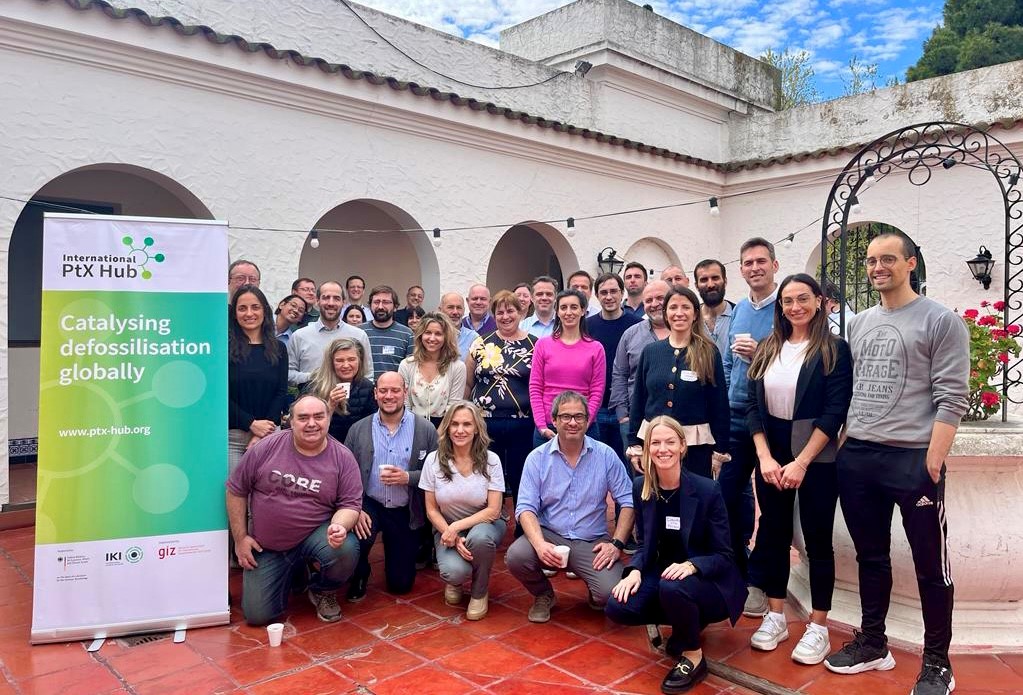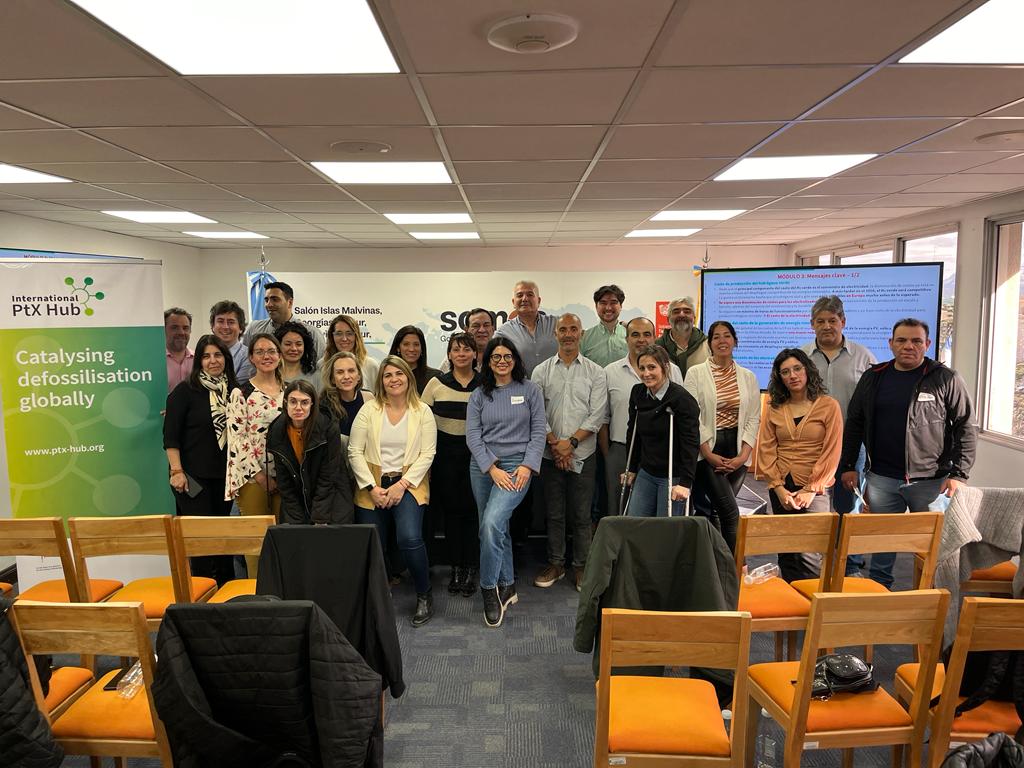Efforts to enhance understanding and knowledge in green hydrogen and sustainable Power-to-X are gaining traction in Argentina. From September to December 2023, the PtX Hub Argentina team conducted the first three PtX.Basic Trainings aimed at professionals at the provincial level, in Bahía Blanca (Province of Buenos Aires), Ushuaia (Tierra del Fuego), and Puerto Madryn (Chubut).
Nearly 100 participants from different sectors – public, private, academic, and civil society – completed the seven modules of the training. They cover a wide range of perspectives, including the production, economics, infrastructure, markets, sustainability criteria and support policies and regulations for renewable PtX. The approach, tailored to the needs of the different provinces, not only enabled the participants to acquire theoretical knowledge, but also encouraged active participation in enriching discussions. During the trainings, representatives from the Argentinian Secretary of Energy presented their Energy Transition Plan, while provincial representatives presented their progress.
Discussions about the current status and potential developments in the different provinces were a key part of these sessions.
In Bahía Blanca, participants mainly discussed the potential development of a Hydrogen Hub. Bahía Blanca hosts an industrial port, which might expand to export green hydrogen and PtX. Moreover, a functioning ammonia plant that uses natural gas as input already exists and exports. Favorable wind conditions and a capable workforce as well as carbon sources from current industry production further cement the region’s potential. During the discussion, participants explored how the existing infrastructure could not only be expanded, but further developed into a hub. How the local companies’ synergies and complementarities with future PtX production can be used to its full potential was also a key discussion point.
In Ushuaia (Tierra del Fuego), the discussion focused more on environmental issues and the perceived risks and opportunities for tourism that green hydrogen production could bring. While some representatives expressed concerns about potential environmental impacts, others focused on the opportunity to produce e-fuels for boats and cruise ships heading to Antarctica, for example. In addition, Tierra del Fuego’s provincial government has already been working on a hydrogen road map and plans to strategically expand its harbor in Rio Grande to export green hydrogen.
Chubut already has experience in hydrogen production as the province with the only existing green hydrogen plant in Argentina, which started operations in 2009. The province also leads the country in installed wind power capacity and ranks second in terms of oil production. Major energy companies are present, supported by a well-established value chain and local suppliers. Remaining issues in the training’s discussions were water use, the need for government support, and developing norms.
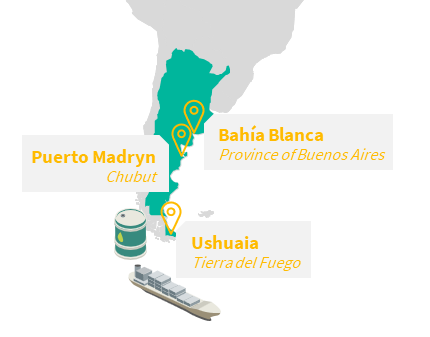
The trainings took place in Bahía Blanca, Puerto Madryn, and Ushuaia. In Ushuaia, new Power-to-X production could supply synthetic e-fuels to cruise ships and boats on their way to Antarctica.
Holistic approach to training and plans for 2024
The training sessions, led by experts Griselda Lambertini and Luciano Caratori, had a profound impact. Both trainers guided participants from understanding fundamental chemical processes to identifying specific opportunities in the Argentinian and provincial context, fostering a deeper and more practical understanding of the topic. It is important that green hydrogen development is driven at the provincial and local level, not just by the national government, and that decisions are based on a thorough understanding of the economics, politics, and technologies of Power-to-X.
In 2024, the PtX Hub will also host trainings in other provinces, delving deeper into topics such as financing, maritime transport, and trainings for industry associations, in response to specific needs expressed in previous trainings.
